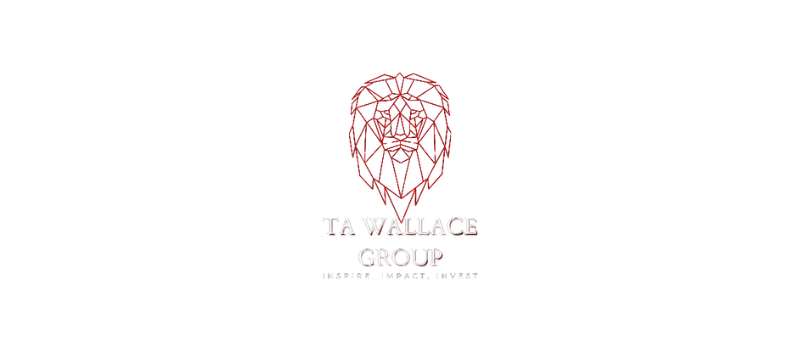Life Coach’s Roadmap: Navigate Major Life Changes Successfully

Embarking on major life changes can be daunting, and a life coach can be a vital guide in navigating these transitions successfully. A life coach’s role is to provide clarity, support, and strategies that empower individuals to achieve personal and professional goals amidst change. Whether dealing with career shifts, relationship changes, or moving to a new city, life coaching enhances self-awareness and resilience, helping clients overcome obstacles and embrace new opportunities. Life coaches also assist with goal setting and strategic planning, fostering a proactive approach to personal development and transformation. Through personalized guidance and coaching sessions, life coaches facilitate emotional growth and strategic planning, ensuring that changes align with core values and lead to fulfillment. By utilizing tools such as mindfulness, journaling, and cognitive-behavioral techniques, individuals learn to manage stress and maintain emotional balance, building resilience and adaptability in the face of life’s challenges. This holistic approach addresses emotional intelligence and fosters a growth mindset essential for successful navigation of life transitions. Explore how life coaching can transform your approach to change, providing practical steps and inspiring success stories that underscore the power of guided personal development. Creating your personal roadmap, with clear goals and actionable strategies, ensures you meet life’s transitions with confidence and clarity. This journey includes self-discovery, mindset shifts, and a commitment to resilience and self-improvement. The Role of a Life Coach The role of a life coach is to guide individuals through personal development by providing support, clarity, and strategies to achieve life goals. Life coaches utilize various coaching techniques to facilitate self-awareness, empowerment, and the realization of one’s life vision. Life coaches help clients navigate challenges, offering mentorship and empowering them to stay motivated and accountable. They provide emotional support and reality checks, ensuring clients remain focused on their personal goals and life purpose. Defining the Purpose and Benefits Life coaching is a process designed to help individuals enhance self-awareness, set and achieve personal or professional goals, and overcome obstacles. This involves introspection, values assessment, and the development of life skills to facilitate personal growth and transformation. Life coaching benefits include: By addressing limiting beliefs and utilizing inner strengths, life coaching guides individuals toward personal growth and success. Through a combination of strategic planning, behavioral change, and consistent feedback, individuals can achieve life satisfaction and fulfillment. Common Major Life Changes Common major life changes include: These changes significantly impact personal life and often require emotional guidance and a support system to navigate effectively. Life coaches play a crucial role in providing this support system, helping clients build resilience and adaptability. Identifying and Understanding Different Life Transitions Life transitions are significant changes in a person’s life, such as career shifts, relationship changes, or personal value evolution. Understanding life transitions involves recognizing emotional responses and developing coping mechanisms like self-awareness and support systems. This process is essential for stress management, emotional intelligence, and the development of transition skills necessary for successful change management. Techniques such as journaling and mindfulness help individuals navigate life transitions effectively. Challenges in Navigating Major Life Changes Challenges in navigating major life changes include managing stress, coping with uncertainty, and adapting to new circumstances. Effective communication skills, emotional intelligence, and a proactive approach are vital to overcoming these challenges. Major life changes often involve emotional adjustment, financial planning, and developing new skills to overcome potential obstacles. Building resilience and staying adaptable are key strategies to handle these challenges effectively. Life coaches often use resilience training and adaptability exercises to prepare clients for life’s uncertainties. Obstacles and Roadblocks to Success Obstacles and roadblocks to success are challenges that hinder progress toward achieving goals. Common obstacles include: Overcoming obstacles requires strategies like seeking support, setting clear goals, and maintaining resilience. Developing a growth mindset and practicing positive thinking are also important for overcoming fears and achieving success. Tools and Strategies for Coping with Change Tools and strategies for coping with change include: Developing a support network and setting clear goals are also effective strategies to navigate change. Life coaching often emphasizes goal achievement and the establishment of an accountability system to ensure progress. Effective Coping Mechanisms Effective coping mechanisms are strategies used to manage stress and maintain emotional balance during times of change. These mechanisms are integral to self-care, stress management, and maintaining a healthy work-life balance. These mechanisms include: Implementing these strategies helps improve resilience and overall well-being. This contributes to personal development and enhances one’s ability to navigate life challenges. Building Resilience and Adaptability Building resilience involves developing the ability to recover from challenges. It requires patience, determination, and a commitment to ongoing self-improvement. Building adaptability means adjusting strategies to new circumstances. This is critical for life balance and effective change management. These qualities are critical for navigating changes and enhancing emotional intelligence. Practices like mindfulness improve emotional regulation and stress management. Mindfulness also supports mental health and enhances clarity, purpose, and vision during transitions. Social connections and problem-solving skills support resilience and adaptability. These skills are essential for conflict resolution and engaging effectively with one’s support network. Fostering these skills equips individuals to face life’s challenges with confidence. It also promotes life satisfaction, productivity, and a sense of fulfillment. Working with a Life Coach Working with a life coach involves receiving personalized guidance to achieve personal and professional goals. This includes skills development, passion discovery, and creating an action plan for future planning and success. A life coach uses tailored coaching methods to help individuals set goals, overcome challenges, and make positive changes. These methods include transformational coaching and strategic planning for long-term growth and success. Life coaching provides accountability, emotional support, and structured planning to facilitate growth and development. It emphasizes the importance of a support system and continuous engagement for sustained progress. How a Life Coach Can Help Navigate Major Life Changes A life coach helps navigate major life changes by providing structured sessions that align personal values with actionable strategies. This ensures that individuals can make informed decisions, stay motivated, and maintain a positive mindset throughout their journey.

